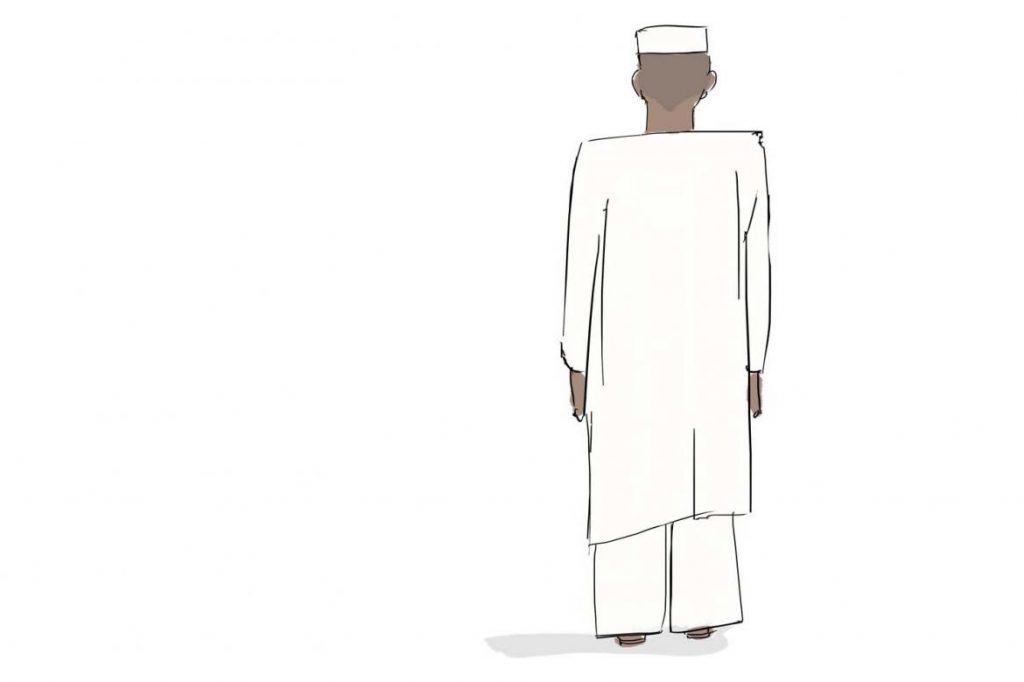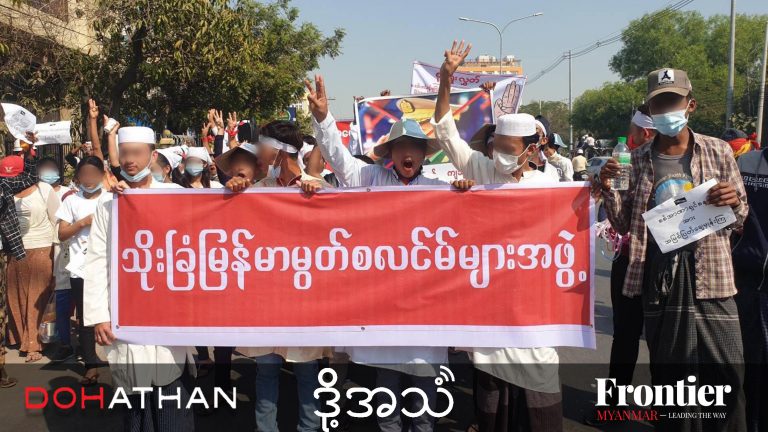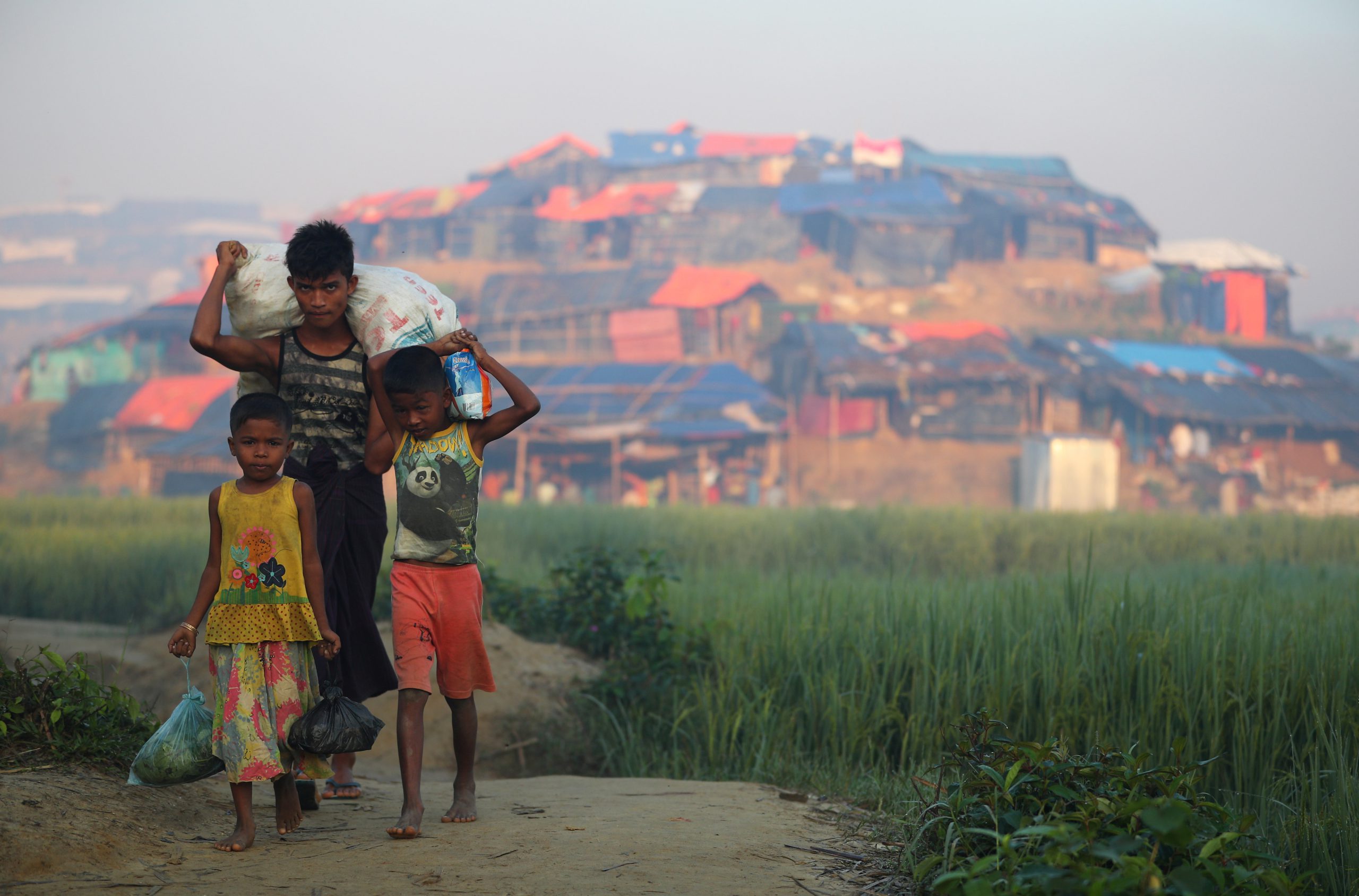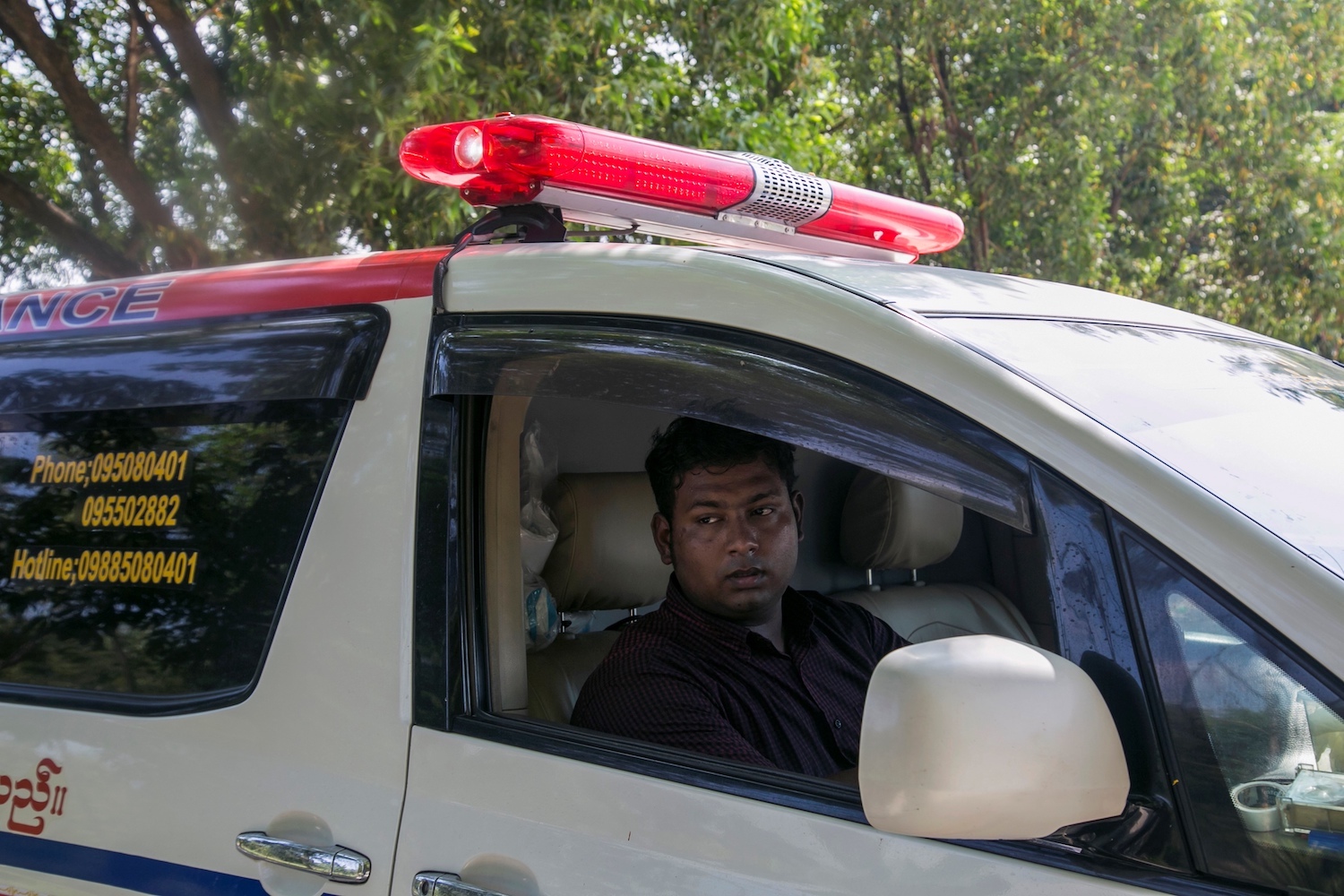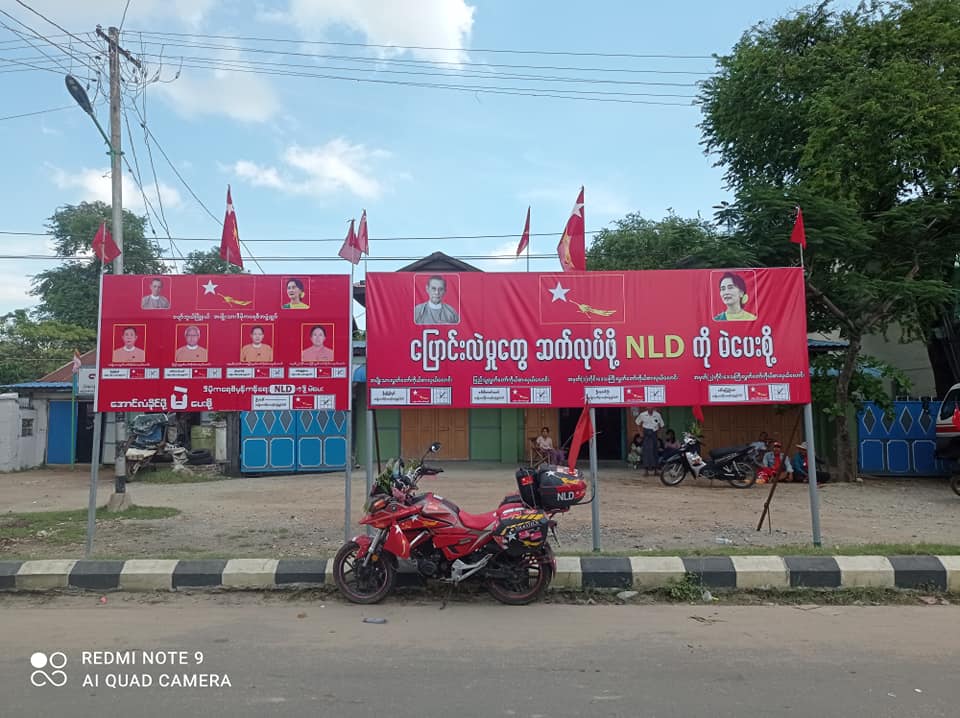At times, Frontier Myanmar has been accused of giving too much attention to the country’s Muslim community, and even of taking sides in the communal and religious conflicts that have plagued Myanmar in recent years.
WE WHOLEHEARTEDLY reject these accusations. Our coverage is the product of several principles. We believe it is important to share knowledge about the many people who live in this diverse country. We believe it is important to give a voice to those who are excluded or silenced. And we believe it is important to report on the many hidden or untold stories in Myanmar.
In this edition and the previous, published on April 26, we have dedicated significant resources and space to covering two aspects of the Muslim community: the Burmese Muslims of Mandalay and the rise of the Tablighi Jamaat movement in Yangon. We believe both are important stories that raise fundamental questions about identity and belonging in modern Myanmar. Both present different ideas and concepts about faith and religion, and they should be read together.
Some may argue that it is dangerous or irresponsible to report on Tablighi Jamaat in the context of Myanmar’s recent communal tensions, because of the risk that it will draw attention to the movement and potentially make it an explicit target for Buddhists who fear the Islamisation of their country. There is also the danger of inadvertently blaming Muslims for the violence and discrimination they have suffered.
These are indeed risks. Yet we felt that it was a story that needed to be told, and we trusted ourselves to tell it in a responsible manner.
In case there is any confusion on our position, let’s make it explicit: Tablighis are simply exercising their fundamental rights. They must be allowed to dress and behave according to the guidelines of their religion so long as they do not threaten, harm or force their religion on others.
Support more independent journalism like this. Sign up to be a Frontier member.
You can debate the implications of Tablighi Jamaat’s popularity for transitioning Myanmar but we have found no indication that Tablighis were seeking to convert non-Buddhists or that they are involved in armed movements – two common accusations levelled against Myanmar’s Muslims by some Buddhists. In fact, we found precisely the opposite: doing so would violate the principles, the six pillars, that Tablighis have committed themselves to. Fundamentalism is not the same as extremism or radicalism.
And this is precisely why the story of Tablighi Jamaat needs to be told: to improve understanding of Islam and its principles among non-Muslims. A Muslim man wearing a kurta or a woman wearing a burqa must not be seen as a threat. Frontier believes they should be seen as citizens who are expressing their faith in the manner of their choosing, in line with the rights explicitly given to them under the 2008 constitution.
But as we have seen many times in Myanmar, the text of a law – even the constitution – is no guarantee that rights will be upheld or respected. The most effective way to fight fear and extremism is through dialogue, education and understanding.
When communities are divided and separated, mistruths and misunderstandings can fester, creating the tinder for conflict that can ignite at the smallest spark, the slightest provocation. When communities understand each other, when there is mutual trust and conflict can more easily be avoided. Religious leaders of all religions and beliefs have a responsibility to preach tolerance and inclusivity.
But they have a further responsibility. For Myanmar to achieve an inclusive future, it is also incumbent on all sides to engage, including Tablighi Jamaat leaders and followers. At the same time, space must be made for everyone to participate in society without being forced to compromise on their beliefs.
Isolation from the mainstream is not the answer. It risks creating or reinforcing the “plural society” that the colonial administrator JS Furnivall conceptualised, where people “mix but do not combine”.
Religious beliefs can create division, but they can also be a source of strength. It is a strength that Myanmar needs to draw upon in this challenging period of its transition.


